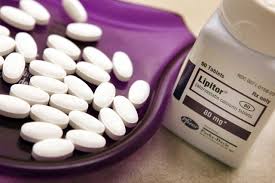
Advertisement
Statins, a widely prescribed drug used to lower “bad” cholesterol and reduce the risk of heart disease, could increase the risk of diabetes by nearly 50 percent, according to a major research trial.
A six-year study from Finland involving nearly 9,000 men discovered that those prescribed statins were far more likely to suffer from poor blood sugar and the telltale signs of diabetes. None of the participants had been diagnosed with diabetes before the study. A little more than 2,100 participants were on statins.(1)
After adjusting several variables, such as age, body mass index, family history for diabetes, alcohol and exercise habits, the researchers found that patients on statins were 46 percent more likely to develop diabetes than patients off statins.(1)
Statins bolster a disease they are intended to prevent
It’s ironic, however, that statins even bolster the disease they are supposed to prevent.
At the end of the trial, approximately 625 men were diagnosed with diabetes, as published in Diabetologia, the journal of the European Association for the Study of Diabetes. The risk of developing diabetes increased alongside the dose of the statins prescribed, according to the study.(1)
After the calculations were said and done, approximately 11 percent of participants taking statins developed diabetes in comparison to six percent of those not taking statins.(1)
Even critics of the study, like Dr. Aseem Malhotra, Honorary Consultant Cardiologist, Frimley Park Hospital, said: “This study confirms that statins directly increase the risk of developing diabetes.”(1)

The researchers suspect statins reduce the secretion of the hormone insulin, which converts sugar (glucose) into energy, thereby triggering the onslaught of diabetes. Other studies have suggested that statins are linked to fatigue, liver problems, muscle pain and memory loss, to name just a few.(2)
The authors of the study state the new findings suggest that the dangers of statins have been understated by both health professionals and the mainstream press. The researchers’ findings are likely reliable, given the study’s duration and population size.
Despite health problems linked to statins, FDA says people should still consume them
Despite the health problems linked to statins, the FDA continues to push the drugs on the masses. According to the FDA’s website, “Cognitive (brain-related) impairment, such as memory loss, forgetfulness and confusion, has been reported by some statin users” and that “People being treated with statins may have an increased risk of raised blood sugar levels and the development of Type 2 diabetes,” but maintains that the drugs are “safe” and “effective.”
While statins are certainly effective at creating a host of health problems, they are light-years away from what any rational person could consider “safe.”(2)
The results of the study demonstrate the importance of analyzing the benefits of prescription drugs while noting all the risks. Patients should be aware that Big Pharma is interested in maintaining, rather than curing, their underlying illness, and that the drugs prescribed come with side effects that often require the assistance of even more drugs.
A similar study involving the adolescent antidepressant Paxil made headlines late last year, after a reanalysis of an original study revealed errors and incomplete data. In actuality, the drug was neither safe nor effective for the targeted demographic, a discovery that Brian Nosek, a professor of psychology at the University of Virginia, says “signals that the community is waking up, checking its work and doing what science is supposed to do — self-correct.”(2)
In light of all these studies, the general public should reconsider the efficacy of statins, stat.
Sources include:
(1) Telegraph.co.uk
(2) NaturalNews.com
Submit a correction >>
This article may contain statements that reflect the opinion of the author
Advertisement
Advertisements















